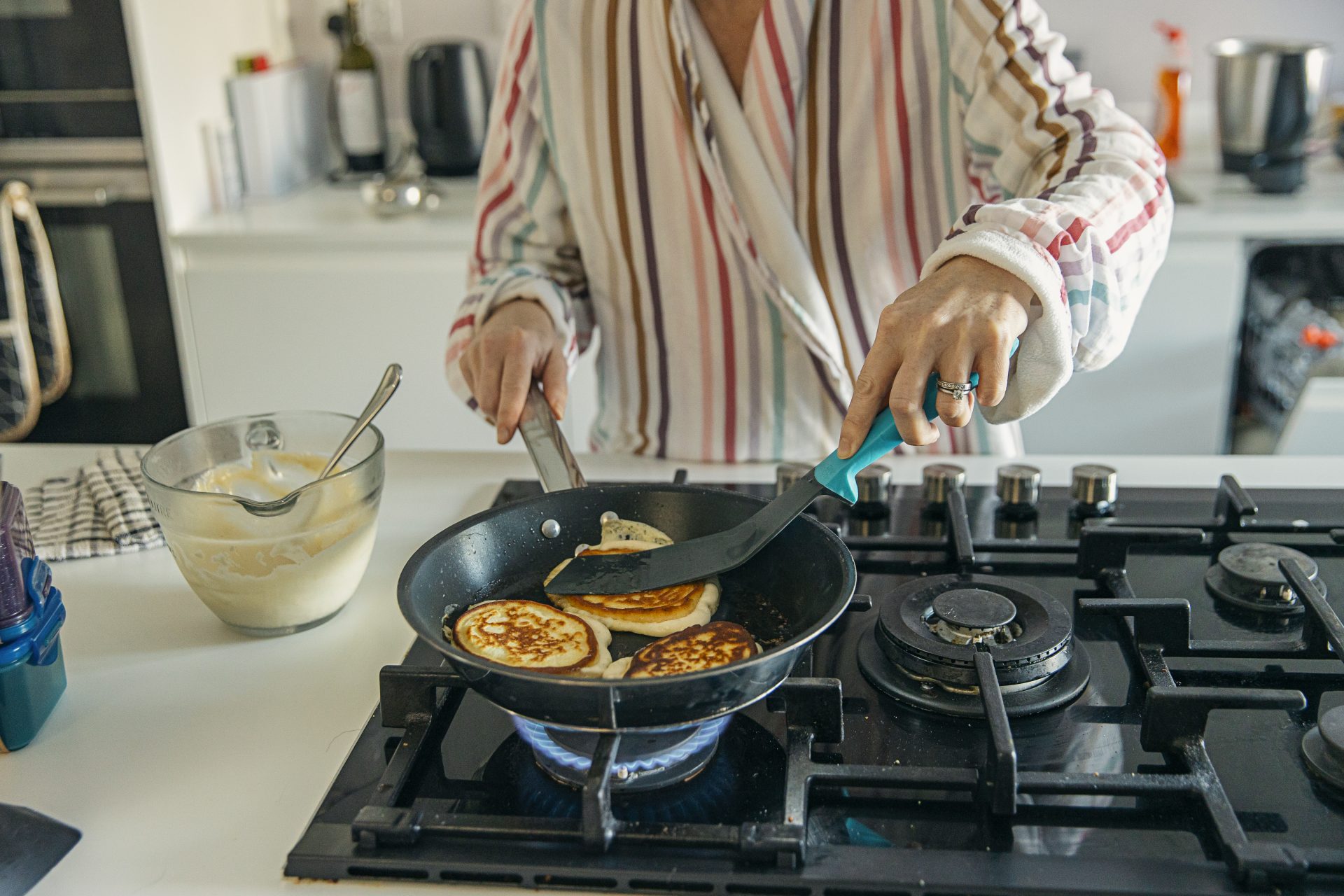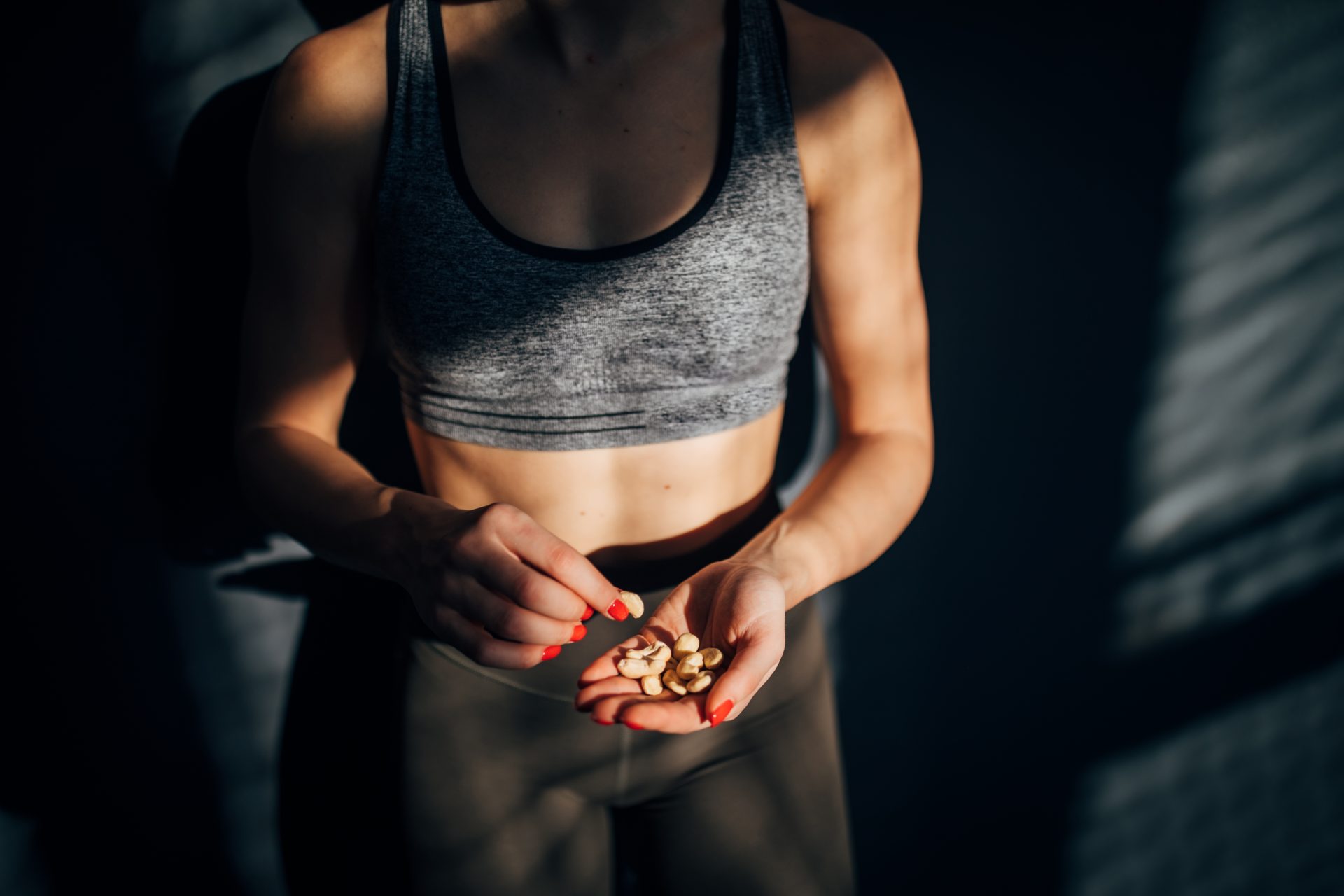The benefits of intermittent fasting are well hyped, but may not apply to women who exercise.
I can’t seem to open my podcast app, Twitter feed or news alerts without seeing mention of intermittent fasting. The benefits of eating practices such as the 16:8 diet (eating within an eight hour period) are lauded by doctors, nutritionists and podcasters and are widely discussed among friends at dinner parties.
This type of analysis about our diets isn’t new, but unlike other faddy eating ‘tips’ (looking at you, keto), intermittent fasting has scientific backing. It seems to be the method the health world is obsessed with – partly because it doesn’t involve modifying what you eat over the course of the day.
The scientific findings are so persuasive (such as a 2016 paper that found IF improved strength while reducing inflammation) that I’ve been tempted to try and move my dinner a little earlier and my breakfast a little later, squeezing my meals into a shorter time frame. But I’ve stopped short of actually trying intermittent fasting because, as someone who trains regularly, I’m particularly in tune with the importance of fuelling before training.
You may also like
HIIT workouts: why and what you need to eat before high-intensity interval training
Experts have frequently advised me that pre-workout carbs improve performance and support hormonal health, so having a banana and an oat milk coffee before a morning workout has become non-negotiable.
For those who are keener to shorten their eating window, however, is having a longer break between dinner and breakfast a beneficial practice?
The benefits of intermittent fasting
“Essentially, when you fast your insulin levels decrease, your levels of human growth hormone increase and your cells also initiate some very important repair processes, known as cellular autophagy. That means they metabolise and remove dysfunctional proteins that build up over time and cause damage,” says nutritionist and female health expert Holly Dunn.

“There are numerous potential benefits linked to these activities, from improved health span to reduced risk of developing of neurogenic degenerative diseases like Alzheimer’s and even protection from mental illnesses like depression.”
So what’s the catch? The fact that hardly any of these studies have been done on women, says Dunn. “Our hormonal cycle is an entirely additional system that influences everything including our stress response, immune system and metabolic profile,” she says. That means we simply can’t extrapolate research on metabolism and cell function done in men and apply it to us.
In fact, one of the only studies on IF that has included women actually proved a reverse effect. A 2005 study showed that blood sugar regulation in women is actually worsened after a 22-day-long intermittent fasting period. “I think it’s quite interesting that the research that has been done on females specifically conflicted with what we understand about the beneficial and metabolic effects of intermittent fasting,” says Dunn.
You may also like
Is the 16:8 diet healthy? “I tried intermittent fasting for a month and here’s why I'm sticking with it”
That doesn’t mean that women shouldn’t fast – it just means that we need to take other factors into consideration, such as hormones, stress and, crucially, exercise.
Intermittent fasting and exercise for women
Here is a good time to note that biologically you aren’t fasting from the second you stop eating. For as long as your body is digesting food, you’re still in a ‘fed’ state. It takes hours to actually begin a ‘fast’, hence why they tend to be so long (like in the 16:8 feeding style). But whether you accidentally train fasted by working out first thing with just a black coffee to line your stomach, or intentionally don’t eat before exercising, there are important implications for women.
For those who have a solid menstrual cycle that doesn’t fluctuate, prioritise sleep and recovery, eat enough throughout the rest of the day and don’t have any other health issues, Dunn says that implementing workouts and IF diets might be OK. The important point is that it’s probably not any better for you.

“Exercise itself creates some of the same beneficial effects as intermittent fasting – for example, it improves insulin sensitivity and it can upregulate autophagy,” says Dunn. “But the latest research has found that there is no additional benefit to fasting and exercising. You don’t support your insulin levels more than if you had just done one or the other. And actually, in that scenario, the question becomes whether you’re just adding an additional stress on the body by not fuelling properly.”
Low energy availability and relative energy deficiency in sports (RED-S) are issues that, anecdotally, are becoming more common – perhaps because we have to apply blanket sports science research done in men to us as women. But as Dunn mentioned earlier, we have hormonal profiles that need a lot more consideration.
“Fasting increases activity in the sympathetic nervous system, production of stress hormones adrenaline and cortisol, the excretion of hunger hormone grehlin and reduces glycogen stores. If you’re regularly doing this a lot alongside a lot of stressful exercise, it can be a perfect storm for your hypothalamus – the hormonal centre in the brain. We can link that huge stress input with adrenal dysfunction, burnout and female reproductive hormonal issues.”
You may also like
Feeling stressed? Here’s how that might affect your exercise plans
How about if you’re practicing IF but exercising after eating? “The jury is still out but from research we know that energy distribution across the day matters,” says Dunn.
“Any period of what we call a micro-energy deficit, so a fasting window or an altered or disrupted energy distribution, is linked to an increased susceptibility to hypothalamic amenorrhea – hormonal dysfunction that causes periods to stop.
“We know that the way that women eat and the way they distribute that energy intake across the day is really important. The research hasn’t been done specifically with an intermittent fasting model but it has been observed that female athletes who delay their food intake often have reproductive health and cycle regularity.”
We know all too well that every woman is different, and there’s absolutely no one size fits all. Some research suggests that those with PCOS do benefit from fasting, and Dunn points out that there are times in our cycle when we may benefit more than others.
“There is some limited evidence to suggest that the second half of the cycle is not a great time for fasted training as we already have a reduced ability to access carbohydrates for fuel. Those who are susceptible to a long cycle or an irregular cycle may want to avoid fasting on the lead up to ovulation increases their risk of disruption to something called lutenising hormone pulsation, which could be problematic as well. The answer is that there is no absolute answer,” she says.
Should you exercise and do IF?
Clearly, the research, headlines and social media posts have ignored the complexities of combining intermittent fasting with a tough workout schedule – particularly in women. As ever, it’s not as straightforward as what people (even experts) share on Instagram.
“I’m certainly not of the view that women should never do both in conjunction. But there may be issues if these two things are done chronically and we have to take the whole person into account – what’s their total stress load and life load? What’s the rest of their diet like?” asks Dunn.
If you do want to practice IF while exercising or simply find that you are only hungry for a shorter period of time in the day, Dunn recommends focusing on recovery and minimising stress in the rest of your day. “For women, being conscious of some of the warning signs about your nutrition and exercise routines, like feeling depleted and poor recovery from exercise, mean you know when you are doing too much,” says Dunn.
There are also times in your life you may not want to pair these practices, like when going through a lot of work, family or personal stress, or training for an event that requires more exercise than normal. And, as ever, don’t take everything at face value – in the hunt for optimised health, we can often have too much of a good thing. For now, I’m quashing my IF curiosity in favour of the workout routine I love.
Images: Getty
Source: Read Full Article
